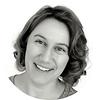Take a photo of a barcode or cover
Succinct. Precise. It's value is in its brevity, pointing out the important ideas without all the fluff of typical nutrition books. I'm also reading In Defense of Food, which expounds on these ideas. Love it.
Really more of a pamphlet than a book. It's easy to read through quickly. I don't feel like I learned anything about food that I didn't already know. Most of what the author gives is common sense and speculation about what processed foods are doing to our bodies. I've been on a weight loss journey for 2 years, so I guess I already feel like I eat pretty well. This would be a good read for someone who has just started and is eating Doritos and drinking Coke every day. At the end of the day the author is just advising people to eat food the closest to its original form and without a lot of preservatives.
Simple, common sense rules for more healthful eating.
I ate this book up. (hee hee) It took me all of an hour or so to read this book. I loved the simple rules, how all the rules seemed to weave together to support "Eat food. Not too much. Mostly vegetables." I'm moving on to his other stuff!
This was an easy read full of stuff that makes me say, I should know this. I am on this mission to eat better, and this little gem is just a reminder that I am doing the right thing.
Feels like thinly veiled diet culture bullshit and more than a little shame-y.
If you're looking for Michael Pollan's thoughtful research on food, grab [b:In Defense of Food: An Eater's Manifesto|315425|In Defense of Food An Eater's Manifesto|Michael Pollan|https://i.gr-assets.com/images/S/compressed.photo.goodreads.com/books/1442538739l/315425._SY75_.jpg|3100234] or [b:The Omnivore's Dilemma: A Natural History of Four Meals|3109|The Omnivore's Dilemma A Natural History of Four Meals|Michael Pollan|https://i.gr-assets.com/images/S/compressed.photo.goodreads.com/books/1393804353l/3109._SY75_.jpg|3287769]. Both of those books are filled with the details of his quest to learn about food in Western culture.
This short book can easily be read in one sitting, and breaks up the wisdom of Pollan's thesis statement (Eat food. Not too much. Mostly plants.) into the book's three sections: What should I eat?, What kind of of food should I eat?, and How should I eat?
Read this book if you're looking for inspiration to stay the course with nutritional goals. That's the benefit I see from these pages. I've read In Defense of Food and I'm sold on how I should be eating. This book gave me a kick in the butt to start adding more veggies to my plate again.
The wisdom is quick and intentionally repetitive. Pollan tells the reader that while a few of the sayings may be stickier for some, others may find different sayings sticky, so grab what boosts you can.
This short book can easily be read in one sitting, and breaks up the wisdom of Pollan's thesis statement (Eat food. Not too much. Mostly plants.) into the book's three sections: What should I eat?, What kind of of food should I eat?, and How should I eat?
Read this book if you're looking for inspiration to stay the course with nutritional goals. That's the benefit I see from these pages. I've read In Defense of Food and I'm sold on how I should be eating. This book gave me a kick in the butt to start adding more veggies to my plate again.
The wisdom is quick and intentionally repetitive. Pollan tells the reader that while a few of the sayings may be stickier for some, others may find different sayings sticky, so grab what boosts you can.
If you've read anything by Pollan, you can skip this. It's basically a super brief summary of the major points of In Defense of Food with a few bits from his other works. Might be a good introduction for someone new to his works or food lit in general but otherwise it's entirely skippable.




